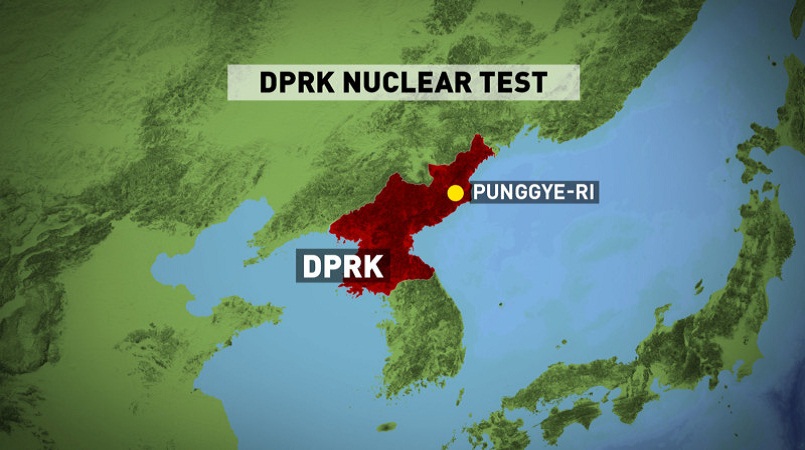
Papua New Guinea has condemned the recently North Korea’s 5th nuclear test that was conducted on Friday Sept 2, 2016.
The test had strained the nerves of neighboring countries and caused a 5.0-magnitude quake, with an epicenter at zero kilometer depth, in Punggye-ri, northeastern Korean Peninsula, a place believed to be Democratic People’s Republic of Korea (DPRK’s) nuclear test site.
Speaking on behalf of Prime Minister Peter O’Neill and the Government of Papua New Guinea at the United Nations General Assembly (UNGA) in New York, Minister for Foreign Affairs and Immigration, Rimbink Pato joins the rest of the international community and condemned the action by DPRK.
Pato in a statement said: “Pyongyang must heed such unequivocal warnings of the international community as it violates all existing United Nations Security Council Resolutions (UNSCR).”
“This is in absolute disregard for the common objective of the international community for peaceful co-existence and amicable resolutions to solving disputes.”
Pato added that “as a signatory to the Comprehensive Nuclear Test Ban Treaty (CTBT), Papua New Guinea supports calls by South Korea for the entry into force of the Treaty as North Korea’s obsession with nuclear testing reminds us that there is a huge price to pay for the long overdue entry of the Treaty”.
This year alone, North Korea has conducted two nuclear tests which breaks the de facto moratorium on nuclear testing as it is the only regime to have conducted nuclear tests in the 21st century.
“Papua New Guinea therefore urges the international community to support calls for North Korea to restrain from further testing as its fast-advancing capability and intentions, “renders it a ticking time bomb”, and is of grave concern to the international community and should not be tolerated as it poses a security threat to all of us,” Pato stressed.
He added that the international community must urge remaining Annex II states of the CTBT to take the lead in ensuring that the Treaty enters into force.
“This will reaffirm international commitment to the UN Charter in maintaining international peace and security.
“The international community must take effective measures for the prevention of threats to international peace and security,” says Pato.
